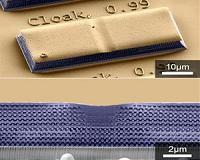 |
London (AFP) May 26, 2011 Too much metal is being thrown away when it could be recycled, wasting an opportunity to save energy and risking shortages in materials used for new green technologies, a UN report warned Thursday. In a landmark study, the first to outline the extent to which metals are collected, the UN Environment Programme (UNEP) found that less than one third of about 60 metals studied are recycled to any significant degree. This is frustrating because recycling reduces the need for energy-intensive mining -- the report says extraction alone currently accounts for seven percent of the world's energy consumption. "In theory, metals can be used over and over again, minimising the need to mine and process virgin materials and thus saving substantial amounts of energy and water while minimising environmental degradation," said Achim Steiner, UN Under-Secretary General and UNEP executive director. "Raising levels of recycling worldwide can therefore contribute to a transition to a low-carbon, resource-efficient green economy while assisting to generate 'green jobs'." Lead is the most recycled metal, according to the report compiled by UNEP's International Resources Panel, with nearly 80 percent of products containing lead -- mainly batteries -- used again. More than half of the iron and other main components of steel and stainless steel are also recycled, as are platinum, gold, silver and most other precious metals, although the latter's re-use varies depending on the application. But the report found virtually no recycling of metals such as Indium, which is used in semi-conductors and LEDs; tellurium and selenium, which are used in solar panels; and neodymium and dysprosium, used in wind turbines. Thomas Graedel, a professor of industrial ecology at Yale University and one of the report's eight authors, warned that the failure to re-use these metals increased the possibility of future shortages. "If we do not have these materials readily available at reasonable prices, a lot of modern technology simply cannot happen," he said. "We don't think immediate shortages are likely but we are absolutely unable to make predictions based on the very limited geological exploration currently conducted." The report recommends improvements in waste management to ensure products containing metal are dealt with more effectively in emerging and developing countries, and encourages product designers to make material separation easier.
Share This Article With Planet Earth
Related Links Space Technology News - Applications and Research
 Karlsruhe Invisibility Cloak: Disappearing Visibly
Karlsruhe Invisibility Cloak: Disappearing VisiblyKarlsruhe, Germany (SPX) May 24, 2011 "Seeing something invisible with your own eyes is an exciting experience," say Joachim Fischer and Tolga Ergin. For about one year, both physicists and members of the team of Professor Martin Wegener at KIT's Center for Functional Nanostructures (CFN) have worked on refining the structure of the Karlsruhe invisibility cloak to such an extent that it is also effective in the visible spectral rang ... read more |
|
| The content herein, unless otherwise known to be public domain, are Copyright 1995-2010 - SpaceDaily. AFP and UPI Wire Stories are copyright Agence France-Presse and United Press International. ESA Portal Reports are copyright European Space Agency. All NASA sourced material is public domain. Additional copyrights may apply in whole or part to other bona fide parties. Advertising does not imply endorsement,agreement or approval of any opinions, statements or information provided by SpaceDaily on any Web page published or hosted by SpaceDaily. Privacy Statement |